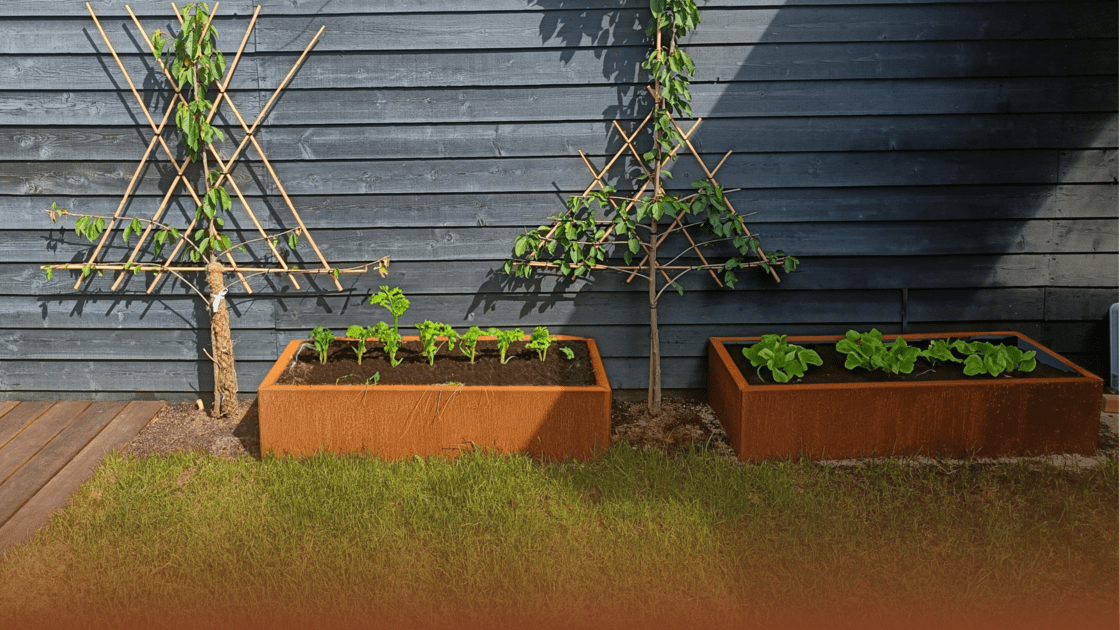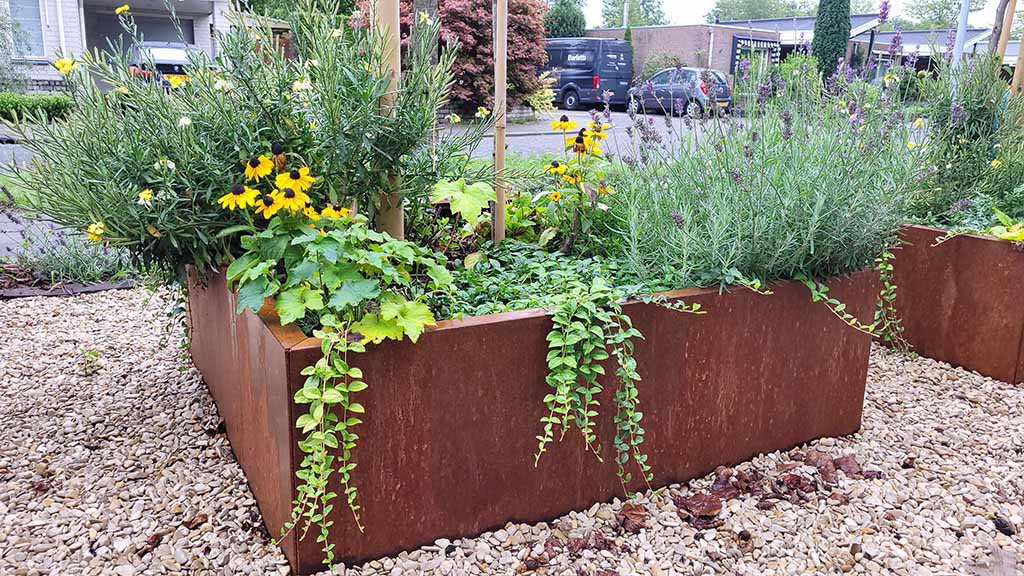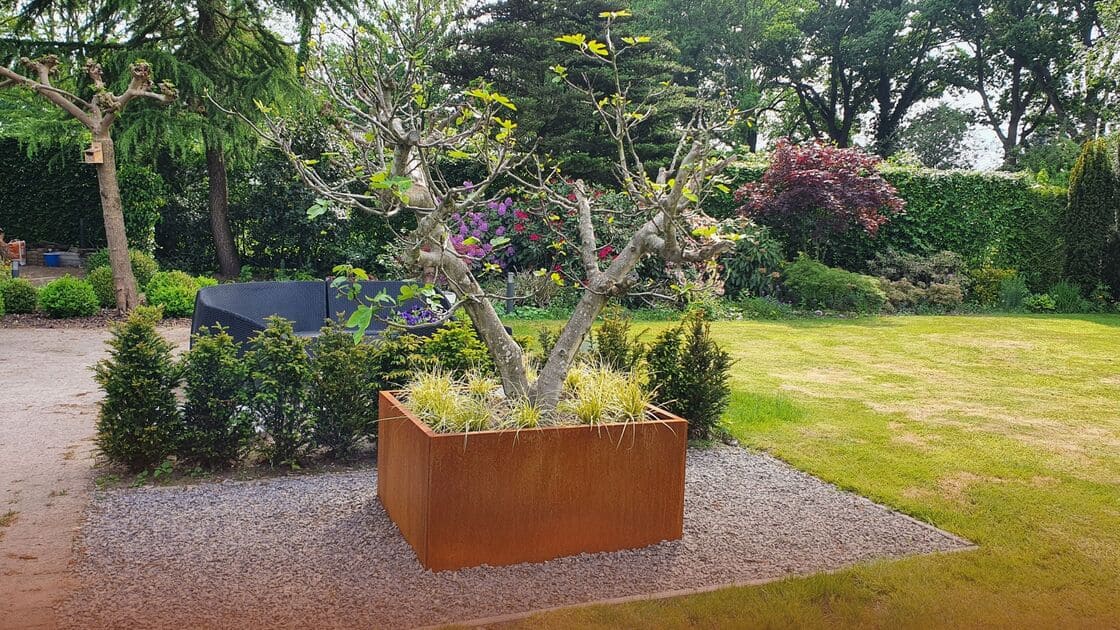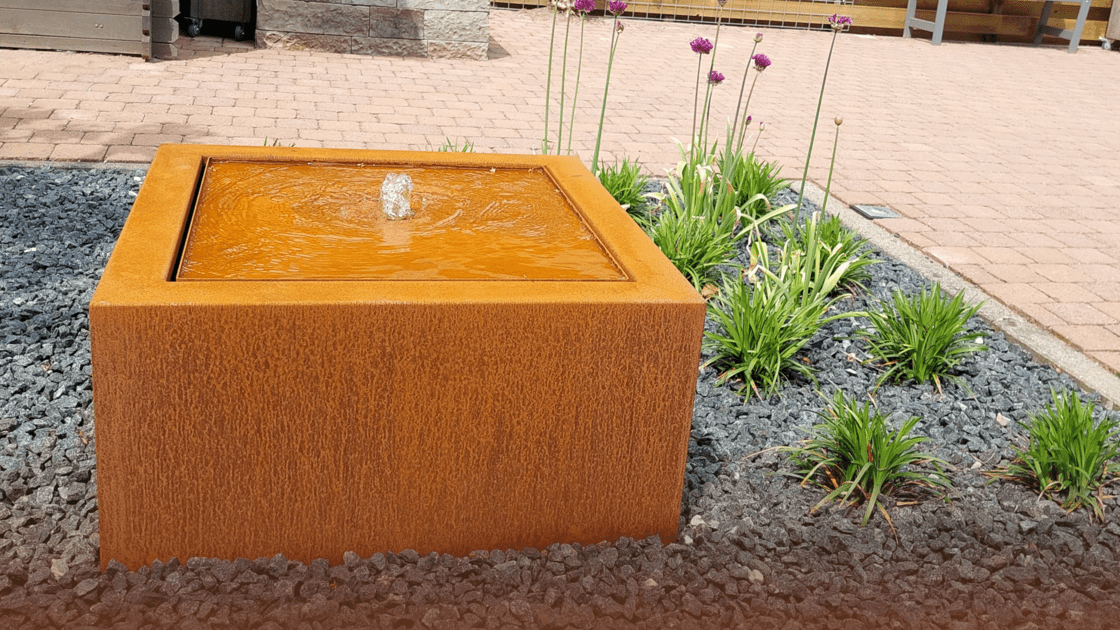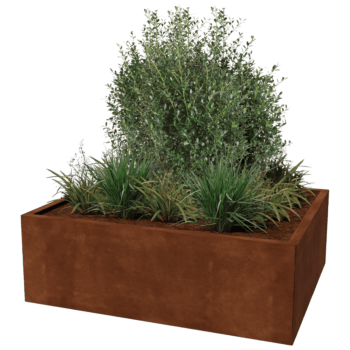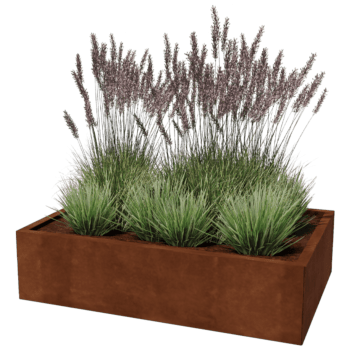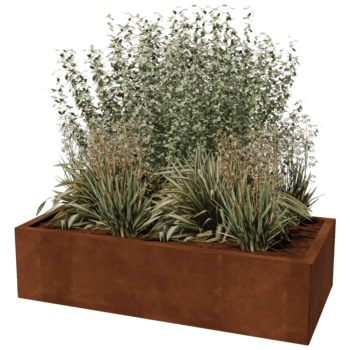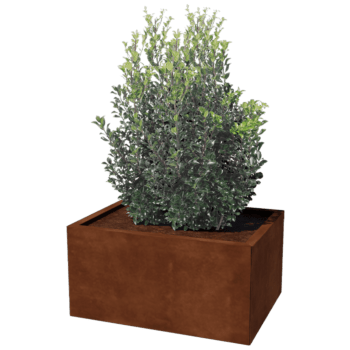Why corten steel is perfect for a vegetable garden
Corten steel has a rusty appearance and is very strong. The material is popular in gardens and landscapes and is now even increasingly used for raised vegetable beds. But what makes corten steel so suitable for this?
In this article, we will discuss the unique properties of corten steel that make it perfect for use in the vegetable garden.
Summary
- Corten steel is ideal for raised vegetable beds because it is strong, durable, and easy to maintain.
- Wooden vegetable beds often require maintenance and can rot or be affected by insects. This means they do not last long and are less reliable.
- Raised beds ensure better drainage and help maintain soil quality. This keeps your vegetable garden healthy and productive.
Why is corten steel perfect for your vegetable bed?
Corten steel has a few special advantages that make it very suitable for your vegetable bed. Below we will look at these properties in detail:
Strong and durable
One of the main reasons why corten steel is perfect for your vegetable bed is that the material is very strong. Corten steel can easily support the raised soil with a lot of sand and plants. In high vegetable beds, the pressure from the plants and sand can indeed be significant. With corten steel, you do not have to worry about your bed breaking; it provides a solid and stable base.
Weather-resistant and low-maintenance
Corten steel has a special composition that gives it a protective rust layer. This layer prevents further rust formation. Therefore, you can greatly use corten steel in all weather conditions. Your vegetable bed will last long with minimal maintenance.
This means you also do not have to treat corten steel with chemicals. This is good for the environment, as no harmful substances are released. It is therefore safe for the plants in your vegetable garden.
Reading tip
Want to know more about the environmental friendliness of corten steel? Read our blog ‘Is corten steel harmful to the environment: humans, environment, plants, and animals?’
Easy to install and use
Corten steel vegetable beds are easy to assemble. You can therefore quickly start your vegetable garden. Because the corten steel planter is higher than the ground, gardening also becomes more comfortable and less straining on your back.
The planters from MySteel are available in various heights, from 30 to 80 cm (in some configurations, the planters can be 100 cm high). This means there is always a vegetable bed with the right height for your specific needs and preferences.
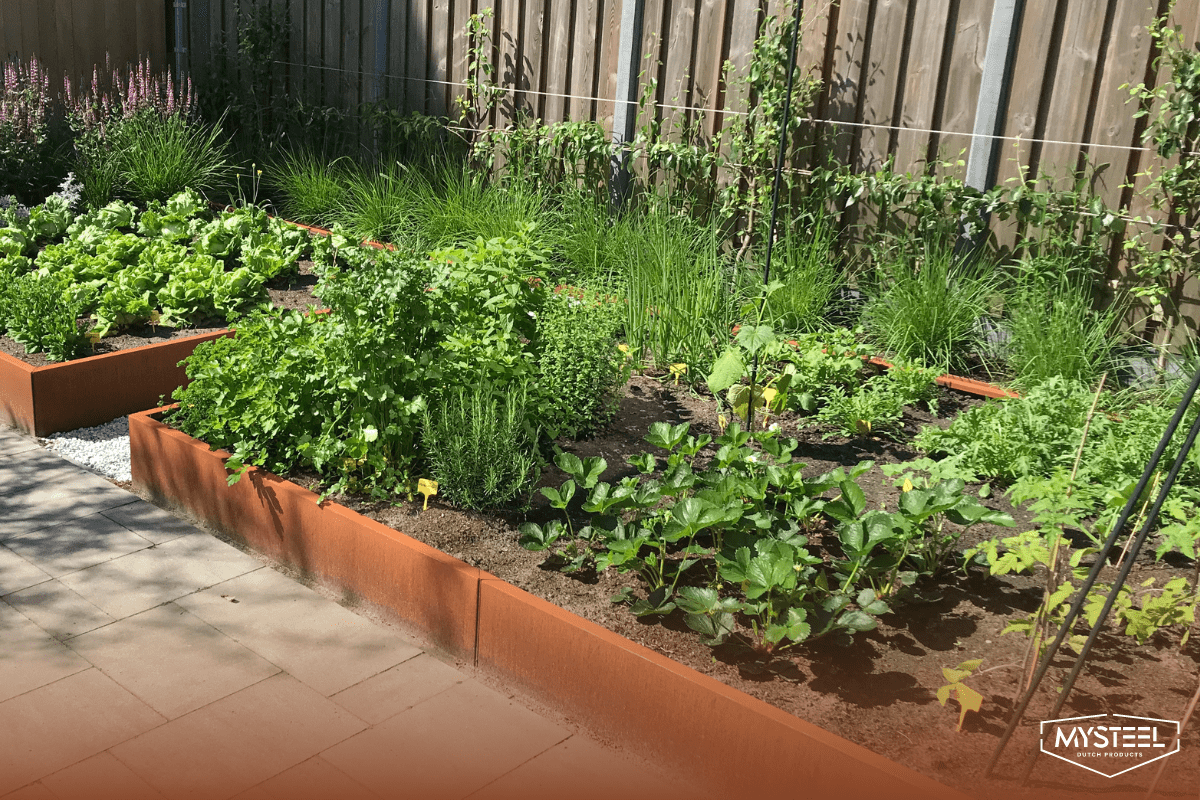

Advantages compared to a wooden vegetable garden
When choosing materials for a growing bed, you can choose wood in addition to corten steel. What is the difference? Below we discuss the pros and cons of both materials:
Wood
Wooden vegetable beds have a classic look and fit well into various garden designs. But there are also a few disadvantages to using wood for your growing bed:
- Maintenance: Wood needs regular maintenance and painting to last longer and protect against the weather.
- Rotting: Wood can rot and be affected by fungi and insects. This can weaken the structure of the bed.
- Replacement: After a while, wood needs to be replaced because it can rot and break down, especially when it frequently comes into contact with moist ground.
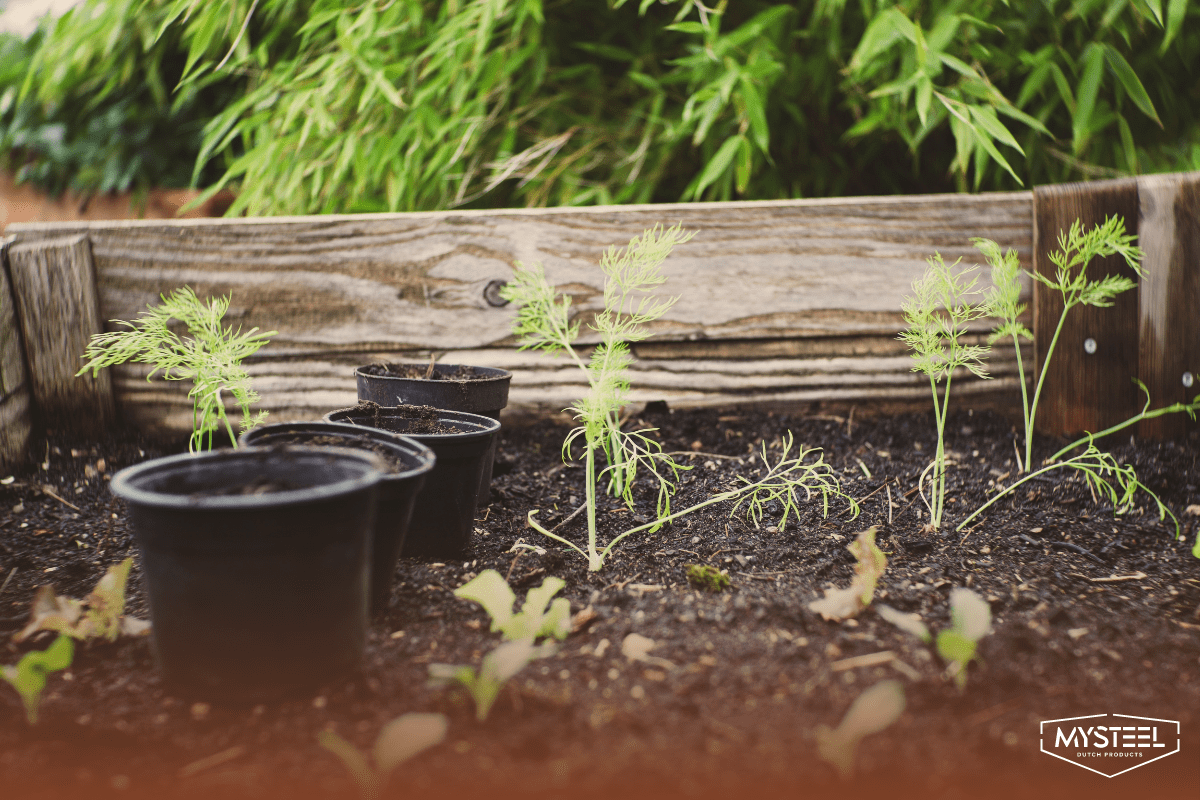

Corten steel
Corten steel, on the other hand, has many advantages, making it a good alternative to wooden vegetable beds:
- Low maintenance: Corten steel requires almost no maintenance and does not need to be painted. The material develops a natural rust layer that protects against rusting.
- Durability: Corten steel lasts much longer than wood and is not susceptible to insects and rot.
- Heat: Corten steel heats up quickly and retains this heat longer. This means the soil warms up faster in spring and stays warm longer in autumn. This allows the growing season to start earlier, which is particularly useful in colder climates.
Why is heat so good for plants?
Heat is important for plant growth. The heat benefits of corten steel can make your vegetable garden healthier and more productive:
- Faster seed germination: Warm soil helps seeds germinate faster. Many vegetable seeds need a certain minimum temperature to grow.
- Better plant growth: Warm roots absorb nutrients more easily, promoting plant growth. This results in strong and healthy plants.
- Longer growing period: Because corten steel quickly absorbs and retains heat, some crops can grow longer. This means you can harvest more and have a larger yield.
Style tip
In your corten steel vegetable garden, you can also choose to add a corten steel water table as a soothing water ornament. With its warm, rust-brown appearance, it fits perfectly within the natural garden design.
Does corten steel deter slugs?
Slugs can be a big problem in your garden, as they love to eat vegetables and leaves. Gardeners are therefore always looking for effective ways to keep slugs away.
Some say that corten steel can deter slugs. The little copper in corten steel (only 1%) could oxidize the mucus of slugs, keeping them away from your vegetables and fruits. However, we cannot say for certain that this reaction actually occurs.
The rough texture of corten steel can help keep slugs at bay. They do not like to crawl over sharp or rough surfaces. Additionally, corten steel can get warm in the sun. This also deters slugs since they prefer to stay in cool and moist places.
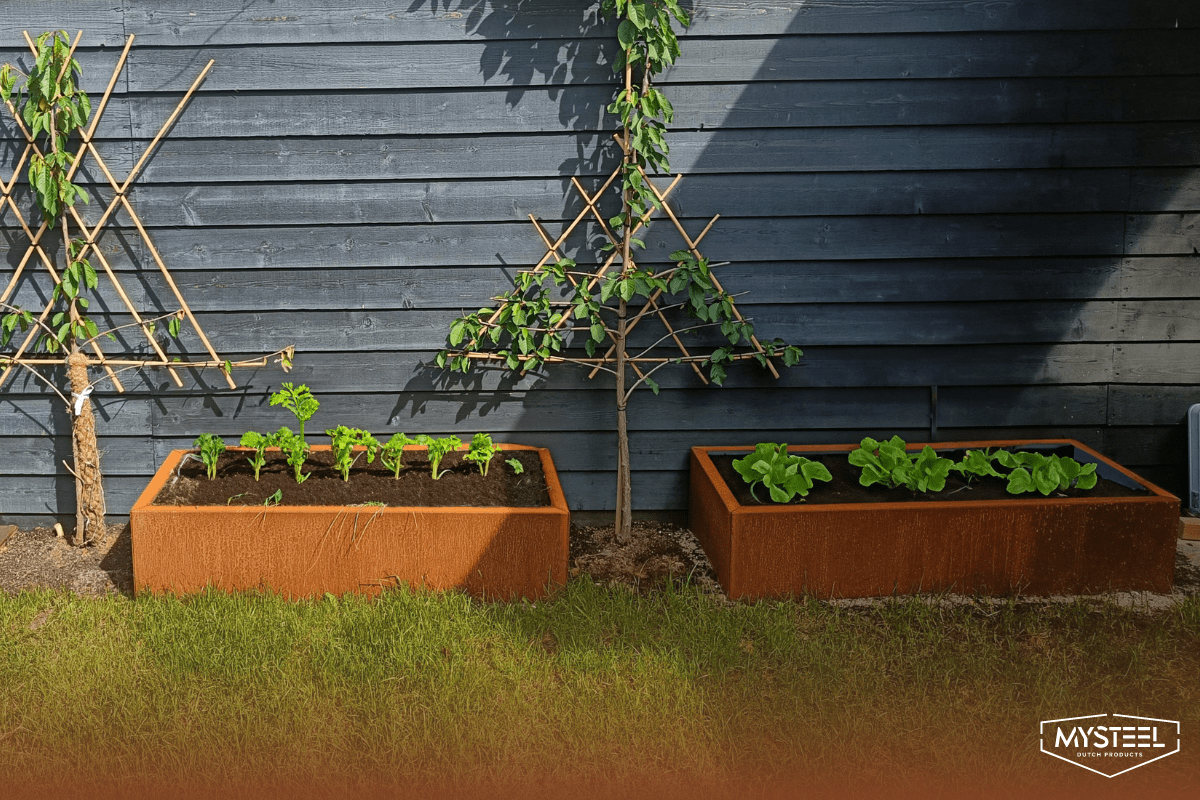

Why is a raised bed good for your vegetable garden?
A raised bed is a defined, elevated area for growing plants, sitting above the regular ground. This has many benefits for your plants and makes gardening easier. Here are a few reasons why raised beds are a good choice:
Drainage
Raised beds ensure good water drainage, which is important for healthy plants:
- Higher elevation: Raised beds are above the regular ground. Therefore, excess water can easily run off. This prevents problems like waterlogging and root rot, which are harmful to many crops.
- Soil structure: The soil in raised beds remains loose and airy. This helps roots grow better and ensures that water and nutrients are well absorbed by the plants.
Reading tip
Corten steel is sometimes seen as an expensive material. But is that really the case? Find out more in our blog where we explain the difference between corten steel and other commonly used materials in the garden.
Improved soil quality
Additionally, raised beds help improve soil quality, which results in healthier plants:
- Soil control: In a raised bed, you can choose which soil you use. This allows you to create the perfect mix of compost, garden soil, and other materials to provide your plants with the best nutrients.
- Less soil compaction: Since you do not need to walk on the beds, the soil remains looser. This helps roots grow better and ensures good permeability for water and air. Thus, you get healthy plants.
- Weed control: Raised beds suffer less from weeds because the soil is less disturbed. You can also remove weeds more easily, resulting in a neater and more productive vegetable garden.
Conclusion
Corten steel is perfect for vegetable beds due to its long lifespan, beautiful appearance, and easy maintenance. The material helps soil warm up faster, which is good for plant growth. Moreover, the rusty look of corten steel gives your garden a distinctive character.
Thanks to these practical and aesthetic advantages, corten steel is ideal for anyone looking to start a sustainable and low-maintenance vegetable garden. Get started yourself and discover how corten steel can enhance your garden!

